This article was medically reviewed by Luba Lee, FNP-BC, MS. Luba Lee, FNP-BC is a Board-Certified Family Nurse Practitioner (FNP) and educator in Tennessee with over a decade of clinical experience. Luba has certifications in Pediatric Advanced Life Support (PALS), Emergency Medicine, Advanced Cardiac Life Support (ACLS), Team Building, and Critical Care Nursing. She received her Master of Science in Nursing (MSN) from the University of Tennessee in 2006.
There are 12 references cited in this article, which can be found at the bottom of the page.
This article has been viewed 28,153 times.
If you are struggling with depression, anxiety, or other mood disorders, Zoloft (the brand name for sertraline) can help you overcome them. Follow your doctor’s instructions for how to take this drug and report any side effects that you experience. Be sure to take Zoloft every day, and take it regularly until you can experience its benefits fully.
Steps
Talking to Your Doctor
-
1Ask your doctor about starting Zoloft. If you wish to start taking Zoloft, start by speaking to your doctor. Tell them about the specific symptoms you are experiencing and how severe they are. Your doctor will be able to assess whether Zoloft is the right option for you, or suggest another course of treatment.[1]
- For instance, say something like, "I have been feeling depressed and lethargic for more than 2 weeks, and it is making it difficult to go to work."
- Zoloft is usually prescribed to treat the symptoms of Major Depressive Disorder (MDD), Obsessive-Compulsive Disorder (OCD), Panic Disorder, Post Traumatic Stress Disorder (PTSD), Premenstrual Dysphoric Disorder (PMDD), and Social Anxiety Disorder.[2]
-
2Disclose any preexisting medical conditions to your doctor. Zoloft should be avoided if you have certain medical conditions to prevent adverse reactions. Be sure to tell your doctor about any illnesses or abnormalities that might preclude you from taking Zoloft. These include:[3]
- Heart disease
- Kidney disease
- Seizures
- Bipolar disorder
- Pregnancy
Advertisement -
3Tell your doctor about any medications you are taking. To avoid drug interactions, it’s crucial that you tell your doctor about all medications and supplements that you are taking. This includes all prescription medications, over-the-counter medications, vitamins, and herbal supplements. To make sure that you don't forget to disclose any medications, write them down before seeing your doctor.[4]
- Note that Zoloft can cause severe reactions, such as convulsions, if taken with other medications for depression.
- Make sure you let your doctor know if you're taking St. John's wort or 5-hydroxytryptophan (5-HTP).
- If you remember another medication after seeing your doctor, call them so they can modify your prescription if necessary.
-
4Get a referral to a mental health professional if necessary. Your doctor may refer you to a psychiatrist or psychologist for further assessment. This might be to confirm their diagnosis, or to supplement Zoloft with additional treatment options like therapy. Be honest and open during visits with any mental health professionals to get proper treatment.[5]
Taking Zoloft in Liquid or Tablet Form
-
1Note the specific dosage your doctor prescribed for you. Zoloft should be taken in different dosages depending on what condition is being treated. Do not take more or less than what you have been prescribed without consulting your doctor. The dosage will be the same in either pill or liquid form.[6]
- The typical dosage is 50 mg, which is what is prescribed to treat depression.
- Your dosage should never exceed 200 mg per day.
-
2Take Zoloft once a day, either in the morning or evening. Your daily dose of Zoloft should be taken at the same time every day. It is important to be consistent about the time you take this medication to ensure that you have the proper amount in your bloodstream at all times. Take Zoloft with or without food.[7]
- For instance, you can take Zoloft after brushing your teeth in the morning.
- Set a daily alarm to remember, or time it with another regular daily task.
- Keep in mind that it may take up to 4 weeks for you to notice any difference from taking Zoloft.
-
3Dilute liquid Zoloft with water as instructed. If you are taking liquid Zoloft, use a medicine dropper to measure out the correct amount of the medication. Mix the dose with 0.5 cups (120 mL) of water and stir it. Drink the mixture right away. You should only dilute the medication right before you take it to maintain its effectiveness.[8]
- You can also mix the medication with 0.5 cups (120 mL) of ginger ale or orange juice.
- Never take Zoloft with grapefruit juice, which can alter its effectiveness in the bloodstream.
-
4Skip any missed doses. If you forget to take your dose of Zoloft at the regular time, skip that dose and wait until your next scheduled dose to take more. Do not double a dose to make up for a missed one.[9]
Managing the Side Effects
-
1Talk to your doctor if you experience suicidal thoughts. It is not uncommon for individuals who take Zoloft to experience suicidal thoughts. Please note that this is a normal side effect that can be managed if you inform your doctor as soon as possible. Your doctor may adjust your dosage or recommend additional treatment such as therapy.[10]
- If you experience suicidal thoughts, do not stop taking Zoloft unless your doctor tells you to do so.
-
2Report any mood swings or abnormal behavior to your doctor. In some cases, Zoloft may cause behavioural changes that hinder your life. Contact your doctor if you experience manic episodes, hyperactivity, extreme irritability, aggressiveness, insomnia, panic attacks, or agitation. This might be an issue with your dosage, or a sign that Zoloft is not the right medication for you.[11]
- If your symptoms are severe, seek medical attention immediately at a hospital or walk-in clinic.
-
3Seek medical attention if you notice physical side effects. If you experience an allergic reaction to Zoloft that results in seizures, difficulty breathing, swelling of your tongue or throat, hives, blurred vision, vomiting, fever, or joint pain, seek emergency medical treatment. If you experience symptoms that are less severe, contact your doctor to see if Zoloft may be the cause. Such symptoms could include:[12]
- Drowsiness
- Loss of appetite
- Nausea or indigestion
- Excessive sweating
- Tremors
- Decreased sex drive
-
4Prepare to wait for the benefits of the drug. Zoloft must be taken for at least a week before it builds up enough to have any effect. You will only see the full effects of the drug 4-6 weeks after you start taking it. Be patient and do not stop taking the drug on the assumption that it is not working.[13]
- Talk with your doctor if you feel like you may need to increase your dosage.
Warnings
- Do not drink alcohol while you're on Zoloft.⧼thumbs_response⧽
- Do not stop taking Zoloft without consulting your doctor.⧼thumbs_response⧽
- If you decide to stop taking Zoloft, you must follow a specific schedule outlined by your doctor to gradually decrease your dosage.⧼thumbs_response⧽
- Be aware that Zoloft can give a false positive on drug tests.⧼thumbs_response⧽
- Zoloft is not approved for treating depression in children.⧼thumbs_response⧽
- Do not take Zoloft while breastfeeding as the medication can be transferred to your baby through the milk.⧼thumbs_response⧽
References
- ↑ https://adaa.org/finding-help/treatment/medication#
- ↑ https://www.zoloft.com/
- ↑ https://www.nami.org/About-Mental-Illness/Treatments/Mental-Health-Medications/Types-of-Medication/Sertraline-(Zoloft)
- ↑ https://www.nhs.uk/medicines/sertraline/
- ↑ https://www.drugs.com/dosage/zoloft.html
- ↑ https://www.mayoclinic.org/drugs-supplements/sertraline-oral-route/proper-use/drg-20065940
- ↑ https://www.mayoclinic.org/drugs-supplements/sertraline-oral-route/proper-use/drg-20065940
- ↑ https://www.drugs.com/zoloft.html
- ↑ https://patient.info/medicine/sertraline-lustral-zoloft
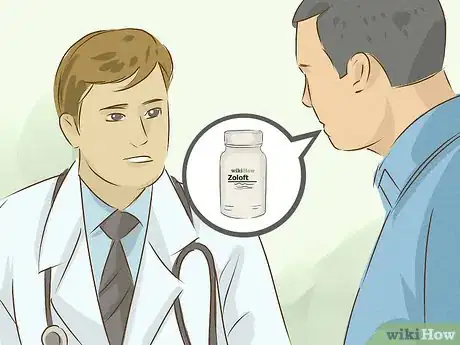

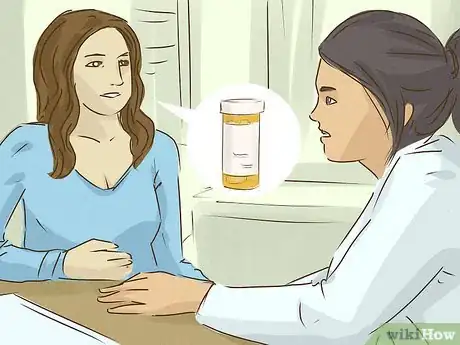
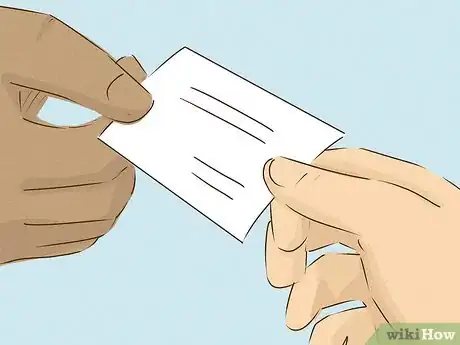
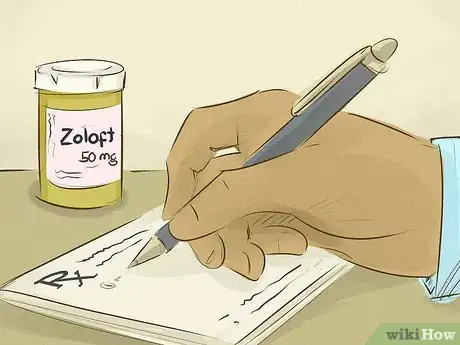

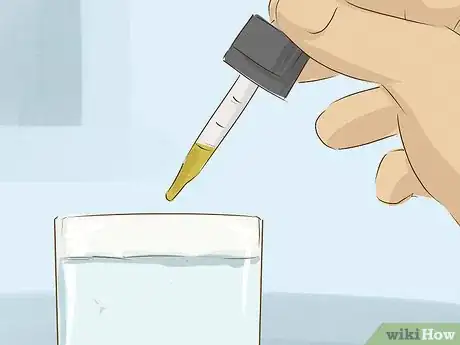
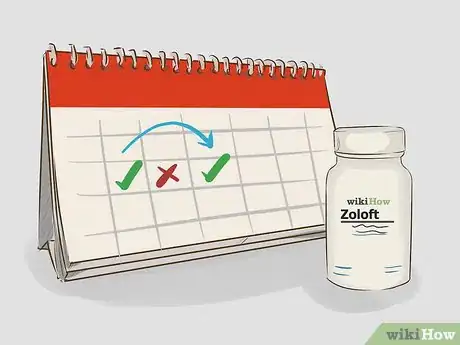

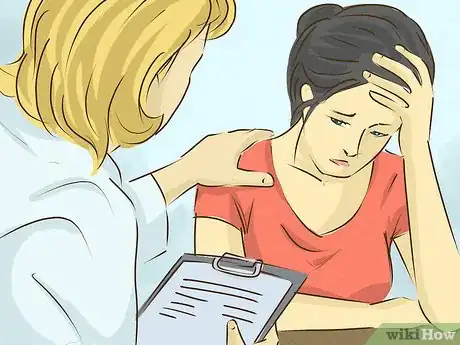

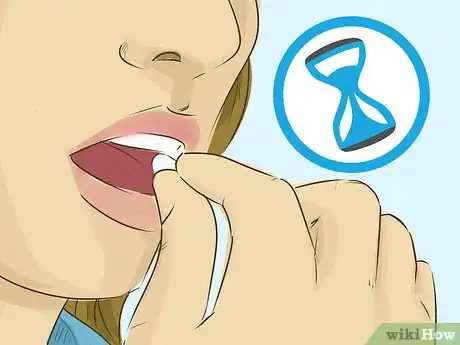





















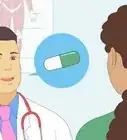






































Medical Disclaimer
The content of this article is not intended to be a substitute for professional medical advice, examination, diagnosis, or treatment. You should always contact your doctor or other qualified healthcare professional before starting, changing, or stopping any kind of health treatment.
Read More...